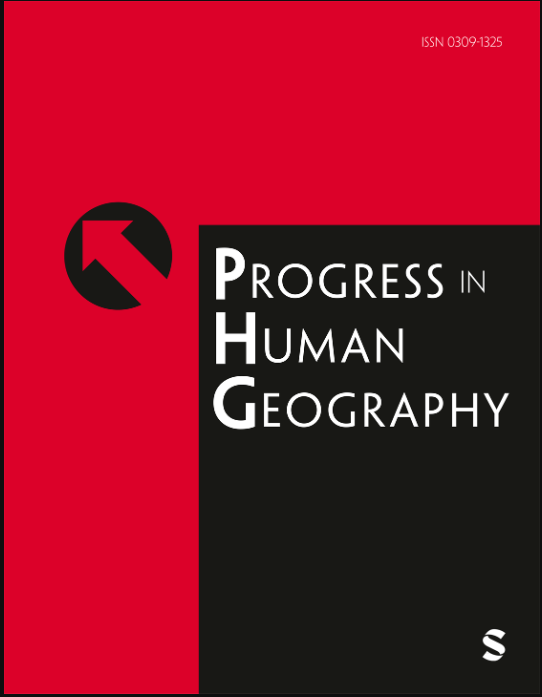游客,不是神:迈克·戴维斯,激进的地理学家
IF 6.1
1区 社会学
Q1 GEOGRAPHY
引用次数: 0
摘要
迈克·戴维斯(1946-2022)是一位左翼知识分子和活动家,也是一位多产的作家。他的主要著作关注的主题包括美国城市的权力关系和不平等,特别是在南加州:汽车炸弹的历史;19世纪末20世纪初气候变化、帝国和饥荒之间的关系;全球南方地区棚户区的爆炸性增长;以及全球流行病的政治生态。作为一名受过训练的历史学家,戴维斯在他的许多著作中,都大量地涉及地理学术,包括人类和生物物理学。虽然他最出名的可能是他对城市地理学的巨大贡献,但他对激进地理学也有重大影响。在此,我将探讨戴维斯对激进地理学家关注的三个领域的贡献:文化地理学、政治生态学、边界和领土。在此过程中,我主要关注他的四本书:《石英之城》、《恐惧生态学》、《维多利亚晚期大屠杀》和《怪物进入》。最后,我考虑了戴维斯的伦理学和对现代性的含蓄批判,以及他关于正义和希望的地理学。本文章由计算机程序翻译,如有差异,请以英文原文为准。
A tourist, not a god: Mike Davis, radical geographer
Mike Davis (1946–2022) was a leftist intellectual and activist, in addition to a prolific author on myriad subjects. His major writings focused on topics that included power relations and inequality in US cities, particularly in Southern California: the history of the car bomb; the ties between climate change, empire, and famine in the late 19th and early 20th centuries; the explosive growth of shantytowns in the global South; and the political ecology of global pandemics. Trained as a historian, Davis, in many of his works, heavily engaged geographical scholarship, both human and biophysical. While he is perhaps best known for his outsized contributions to urban geography, he also had a major impact on radical geography. Herein, I explore Davis's contributions to three areas of concern to radical geographers: cultural geography, political ecology, and borders and territoriality. In doing so, I focus primarily on four of his books: City of Quartz, Ecology of Fear, Late Victorian Holocausts, and The Monster Enters. In the end, I consider Davis's ethics and implicit critique of modernity, as well as his geographies of justice and hope.
求助全文
通过发布文献求助,成功后即可免费获取论文全文。
去求助
来源期刊

Progress in Human Geography
GEOGRAPHY-
CiteScore
16.40
自引率
7.00%
发文量
56
期刊介绍:
Progress in Human Geography is the peer-review journal of choice for those wanting to know about the state of the art in all areas of research in the field of human geography - philosophical, theoretical, thematic, methodological or empirical. Concerned primarily with critical reviews of current research, PiHG enables a space for debate about questions, concepts and findings of formative influence in human geography.
 求助内容:
求助内容: 应助结果提醒方式:
应助结果提醒方式:


